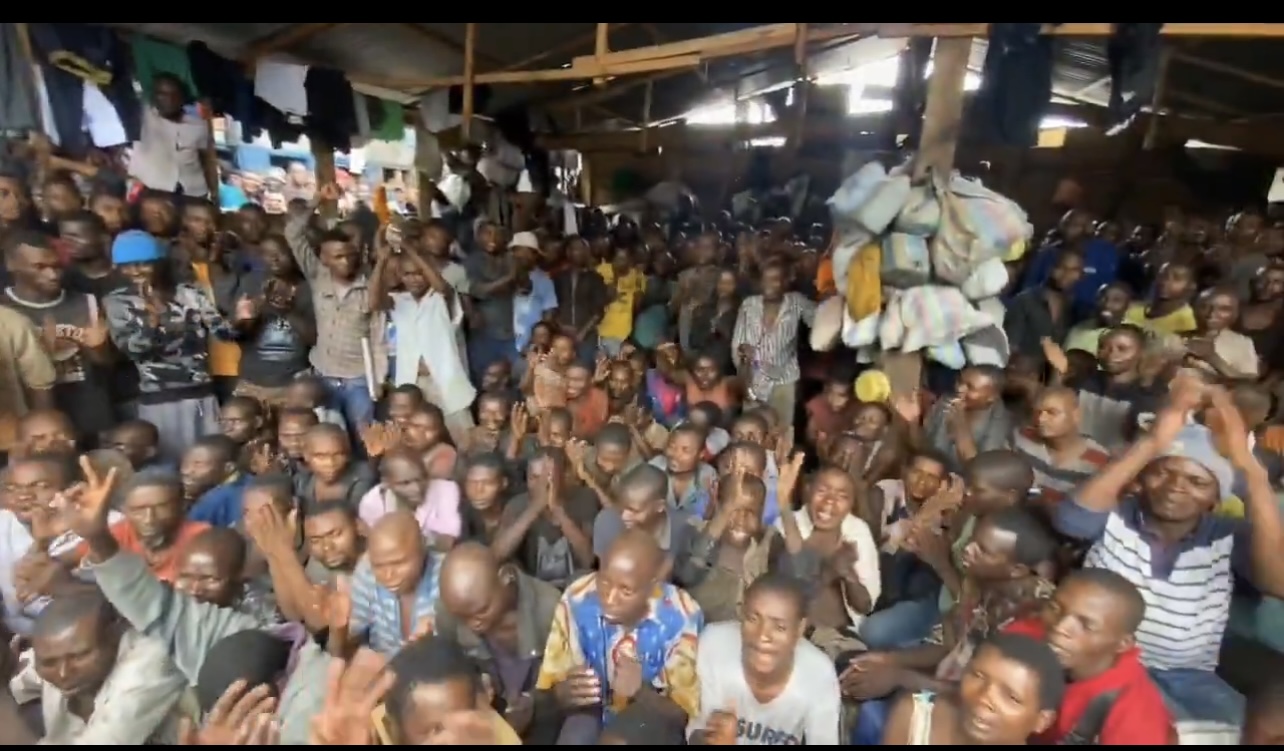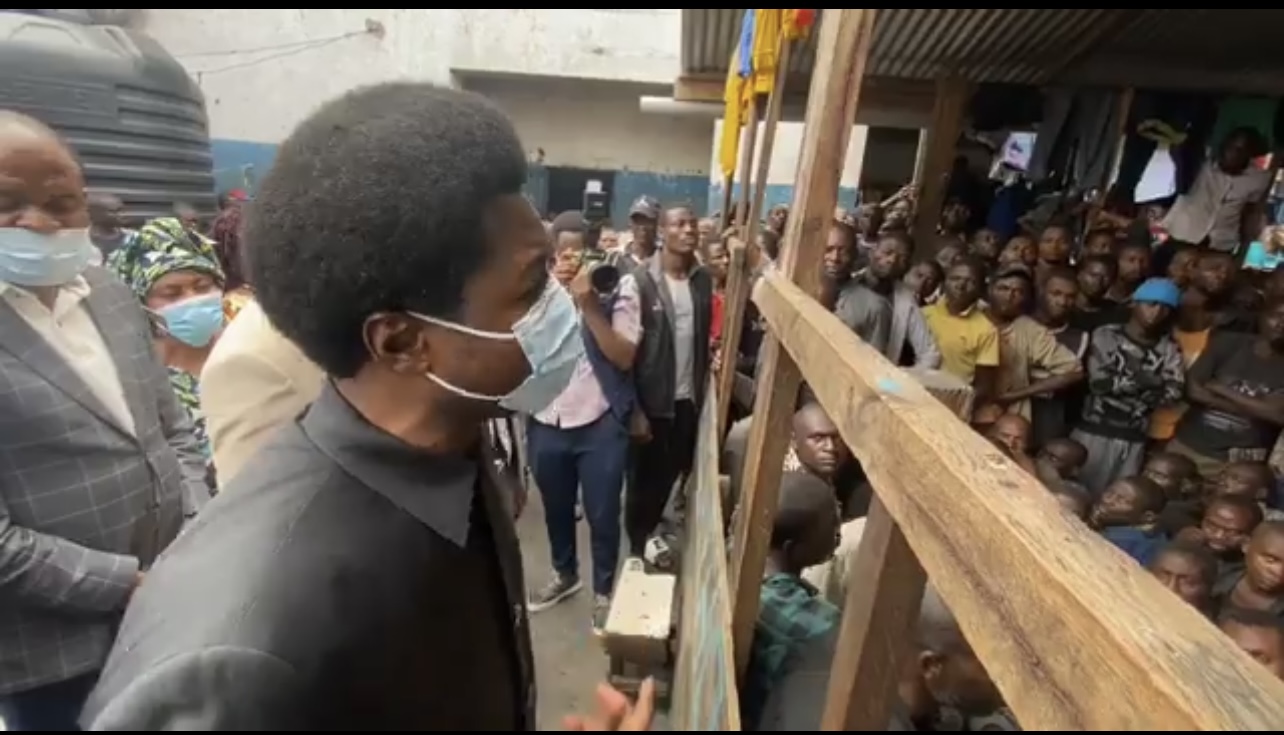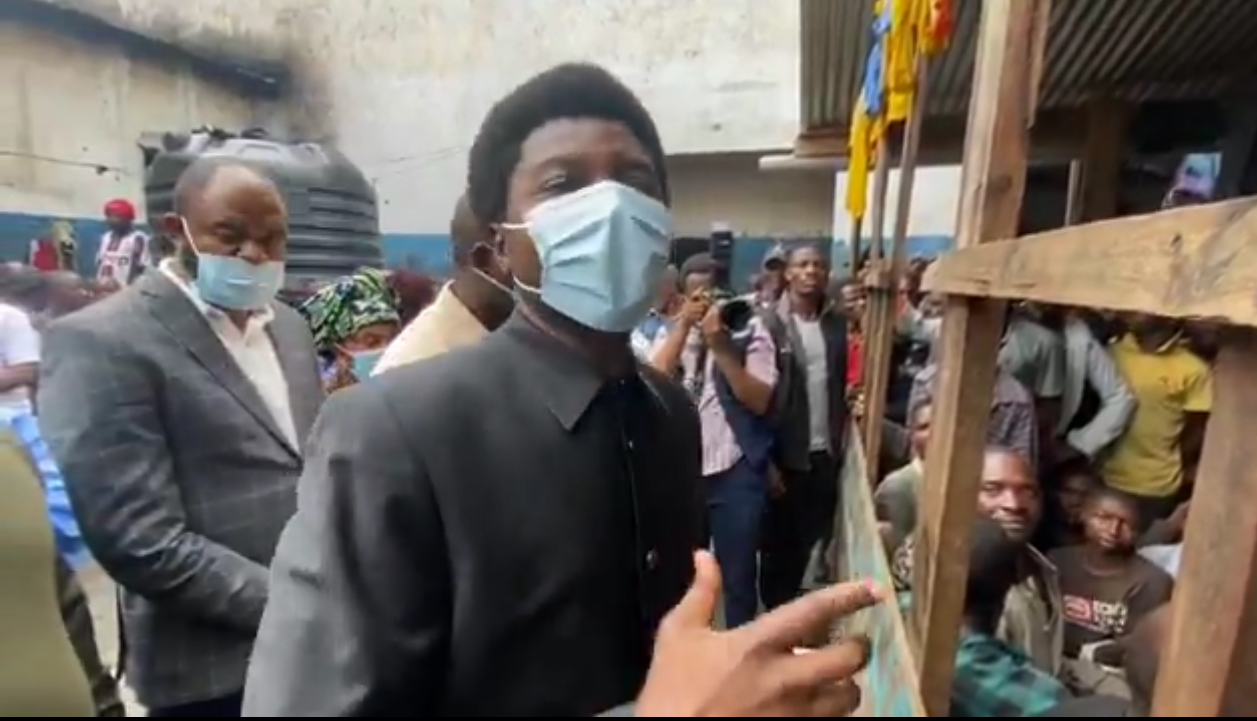In an incendiary speech that has sparked outrage and fear, DR Congo’s new Minister of Justice, Constant Mutamba, addressed detainees at Munzenze prison in Goma, near the Rwandan border. His remarks, which have since spread widely on social media, were a mix of Kiswahili and French and were aimed squarely at Rwanda and its leadership. Mutamba referred to Rwanda’s President, Paul Kagame, as the “enemy” of DR Congo, reiterating the country’s longstanding accusations against its neighbor and further fueling tensions in the already volatile region.
Mutamba’s comments were filled with menacing rhetoric, including threats against those within the prison he deemed traitors. “There are traitors here, we will kill them,” he declared, prompting fear and confusion among inmates who are already subjected to inhumane conditions. He also pledged to reclaim territories such as Rutshuru and Masisi, both located in eastern DR Congo and contested by rebel groups like the M23. This group is primarily composed of Congolese nationals who face significant persecution and discrimination within their home country.
In addition to his threats toward the prisoners, Mutamba directly targeted President Kagame, once again referring to him as the “enemy” and vowing to kill him. This is not the first time DR Congo has made such threats against the Rwandan leader, with previous statements from officials also threatening Kagame’s life. The repeated threats from high-ranking Congolese officials continue to escalate tensions between the two nations, making the already tense situation even more volatile.
The Minister’s speech was delivered with his entourage wearing masks, a precaution against the unbearable conditions of the prison, which are marked by overcrowding and unsanitary conditions. He also promised that prisoners who provided information about suspected traitors would be released, creating an atmosphere of fear among the inmates. The threat of fabricated accusations became a real concern, with many fearing they would be falsely labeled as traitors in exchange for their freedom.

The conditions in Munzenze prison are dire, with inmates packed into overcrowded halls, many of whom are malnourished and lack basic necessities such as mattresses and bedding.
Rwanda’s spokesperson, Yolanda Makolo, condemned Mutamba’s remarks as an “extreme provocation” and raised concerns about the potential consequences. She questioned whether the Minister’s rhetoric could lead to further violence, asking if Rwanda should expect to see prisoners and criminals becoming part of the volatile mix of rebel groups, mercenaries, and regional forces involved in the conflict. The prospect of further destabilization in the region raises alarms among international observers.
Ironically, at press time, Rwanda’s Foreign Affairs Minister, Olivier Nduhungirehe, was in Luanda, Republic of Angola, attending the 6th Tripartite Ministerial Meeting for Peace and Security in the East of the Democratic Republic of the Congo. Rwanda has consistently pushed for diplomatic solutions to the crisis in eastern DR Congo, even as tensions continue to escalate on the ground.
In his address, Mutamba also threatened mass arrests, claiming that those suspected of being traitors would be sent to military detention camps. He urged the public to stop being manipulated by foreign powers, particularly Rwanda, stoking further resentment and fear. This rhetoric of fear and hostility continues to divide the two nations, further deepening the conflict that has plagued eastern DR Congo for years.
Mutamba’s statements are concerning not only because of their inflammatory nature but also because of their implications under international law. The United Nations Convention on the Prevention and Punishment of the Crime of Genocide clearly prohibits threats against foreign leaders, particularly those that incite violence. The repeated threats from DR Congo’s officials against President Kagame are a serious violation of diplomatic norms and international law. The rhetoric, if left unchecked, could lead to even greater regional instability and violations of human rights.
The situation is further complicated by the fact that the M23, composed largely of Congolese Tutsi soldiers, continues to play a major role in the ongoing conflict. Many of its fighters feel that they are being persecuted and discriminated against by the Congolese state. The inflammatory remarks by Congolese officials only serve to deepen these divides, making the path to peace and reconciliation more difficult to navigate.
Mutamba’s speech, calling for the profiling of suspected traitors and offering the release of informants, has only deepened the climate of fear and mistrust in DR Congo. Prisoners, who already endure appalling conditions, now face the additional risk of being falsely accused of treason. The potential for even greater suffering and injustice looms large as the Congolese government’s escalating threats continue to add fuel to the fire of an already tense and volatile situation.




















